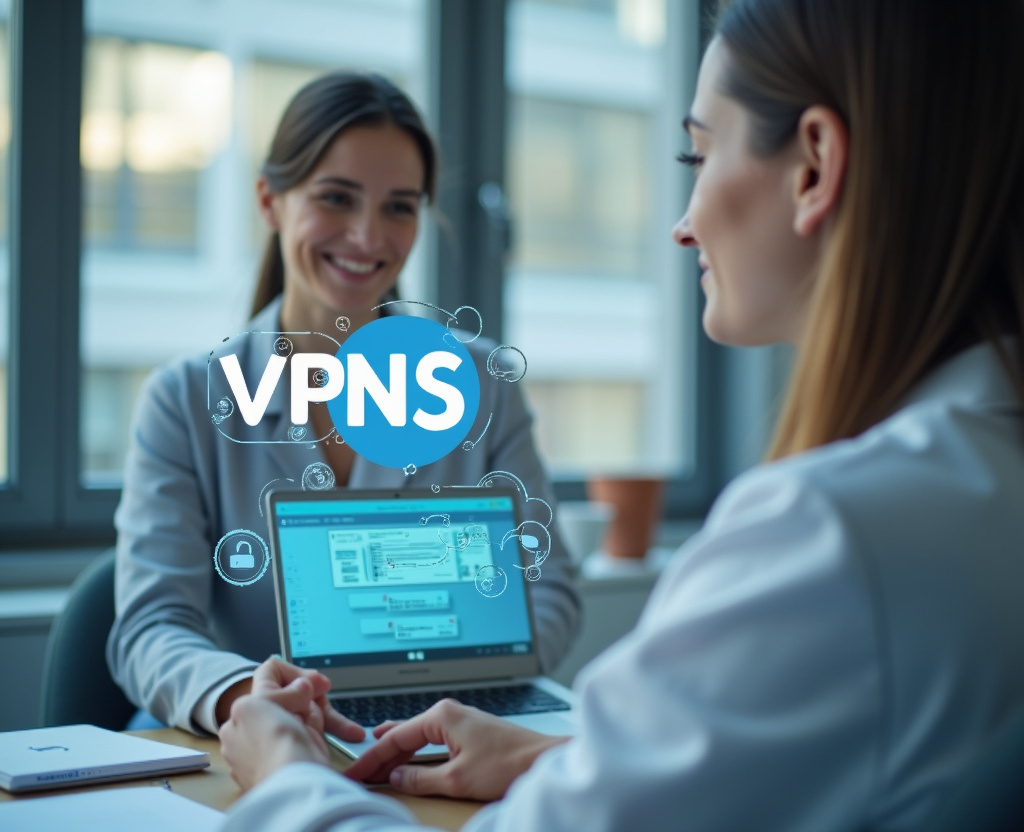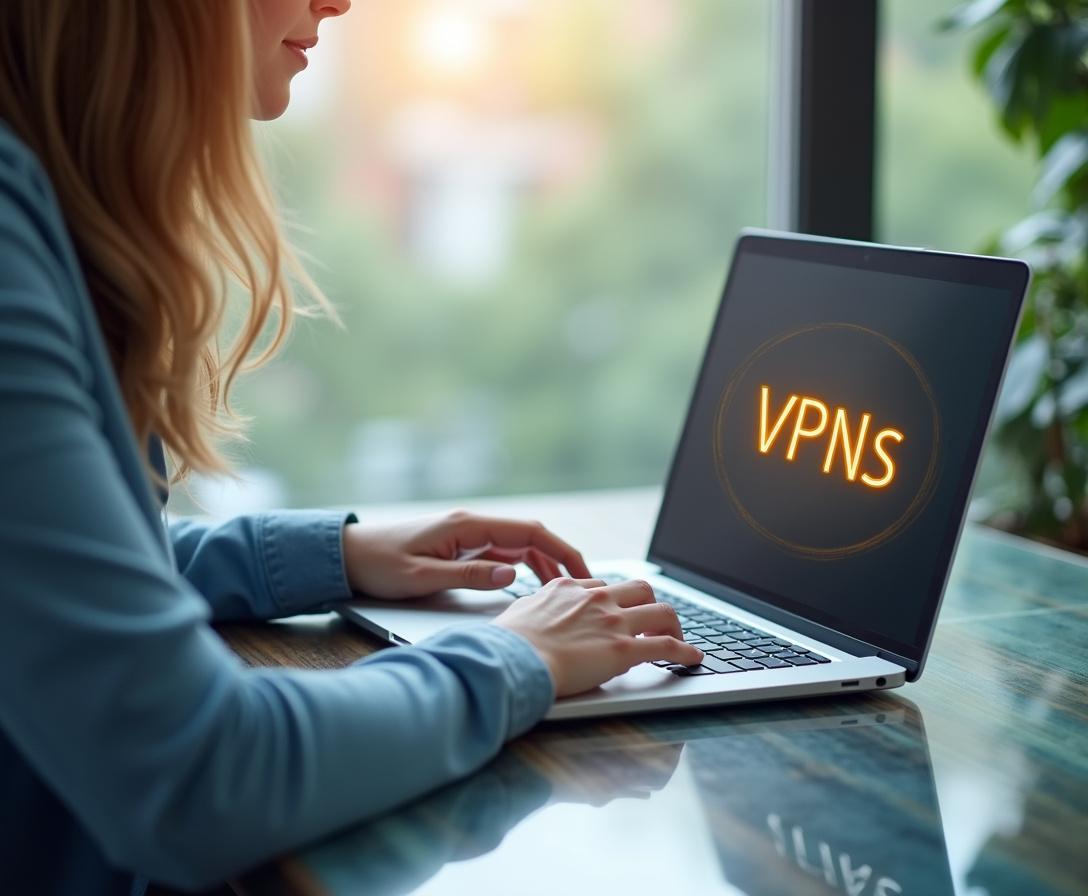VPNs for Speech Therapy: Protecting Client Sessions

Table of Contents
The Importance of Privacy in Speech Therapy
In an increasingly interconnected world, the delivery of healthcare services, including the vital field of speech therapy, has undergone a profound transformation. Telepractice, the provision of these services remotely through digital platforms, has emerged as an indispensable tool, extending access to individuals in underserved areas, offering unparalleled convenience, and ensuring vital continuity of care. However, this digital evolution introduces a new and complex set of challenges, particularly concerning the paramount issue of privacy and ironclad security of client data.
Speech therapists, entrusted with highly sensitive personal and medical information, face a heightened professional and ethical obligation to protect this information from all unauthorized access and potential breaches. The cornerstone of protecting client sessions and upholding confidentiality begins with a reliable speech therapy VPN. A VPN, or Virtual Private Network, skillfully creates a secure, encrypted connection over the often-vulnerable public internet.
This acts as a shield for client sessions and all types of sensitive communication data, effectively safeguarding it from prying eyes and malicious actors. This article sets out to explore every facet of the critical role of VPNs. It underscores their significance in safeguarding client confidentiality.
It emphasizes the absolute necessity of ensuring the integrity of all telepractice sessions conducted. We will delve into the unwavering importance of client session security specific to speech therapy, highlight the lurking vulnerabilities inherent in online communication channels, and thoroughly examine how a VPN directly addresses these concerns with specific tailored solutions. Furthermore, we will meticulously analyze the essential features a VPN should possess to meet the unique security and operational needs of speech therapists.
This includes, but is not limited to, robust encryption protocols, secure protocols for data transfer, strict adherence to all relevant healthcare regulations, and compliance with privacy laws like HIPAA where applicable. The integration of a reliable VPN solution into a speech therapy practice is not a mere technological upgrade; it stands as a committed oath to upholding the highest standards of ethical conduct within the profession. It is a tangible representation of protecting client rights and fostering a trusting and secure therapeutic relationship.
In the highly digitized landscape of modern healthcare, a VPN transcends its function as a simple tool. It embodies a strategic tool for speech therapists dedicated and determined to providing secure, fully confidential, and effective telepractice services with confidence. The relentless rise of increasingly sophisticated cyber threats necessitates the implementation of proactive security measures.
A sound and well-executed speech therapy VPN strategy immediately becomes a fundamental cornerstone of responsible digital practice. By resolutely prioritizing client session security through utilization of robust encryption standards and impenetrable security protocols, speech therapists can take decisive steps to ensure the confidentiality of potentially vulnerable sensitive information. This commitment serves to maintain the integrity of the therapeutic interventions that are provided and actively upholds all of the core ethical principles that are the very foundation of the speech therapy profession.
The selection and subsequent implementation of a VPN service needs to be a diligently undertaken with careful consideration. It's essential to choose a service whose features are specifically and meticulously aligned with the unique and evolving needs of the practice and fully adheres to all relevant legal and regulatory frameworks in the region. Ultimately, the deliberate and strategic integration of a VPN into a speech therapy setting is not a cost, it is a direct investment in the trustworthiness and continued sustainability of the practice in an increasingly interconnected and dangerous world.
Understanding VPNs and Their Functionality
The bedrock of any successful speech therapy practice is the unwavering trust, steadfast confidence, and secure rapport between the therapist and their client. This essential trust is carefully built upon the promise of complete confidentiality, a thorough understanding that all sensitive personal and private medical information shared during therapy sessions will be vigilantly protected from absolutely all unauthorized disclosure. In the context of telepractice, maintaining this sacrosanct confidentiality becomes monumentally crucial.
Client sessions are now conducted over a vast network of digital information highways, potentially exposing them to a broader array of security threats than ever before. These potential threats range from subtle eavesdropping attempts and malicious data interception to full-blown, meticulously planned cyberattacks, all of which could compromise client data and shatter the trust that is foundational for effective therapeutic progress. A breach of confidentiality can inflict devastating consequences on clients, causing intense emotional anguish, irreparable reputational damage, and even serious legal repercussions.
For speech therapists, such a violation can invite harsh professional censure from governing bodies, result in the loss of invaluable clients, and deeply tarnish their carefully cultivated reputation. Therefore, ensuring scrupulous client session security transcends a simple matter of compliance; it's a fundamental ethical mandate to safeguard client safety. To safeguard against these very real threats a robust and reliable speech therapy VPN solution provides a vital and critically important layer of protection, creating a secure and genuinely private communication channel for all online interactions.
By implementing strong encryption to shield all data transmitted between the therapist and the client, a VPN effectively prevents all unauthorized access to sensitive information. This encompasses things like personal details, exhaustive medical histories, and even the specific content of individual therapy sessions. This powerful encryption essentially transforms the raw data into an unreadable cipher, rendering it completely incomprehensible to any unauthorized individual or entity that attempts to intercept it.
In addition to just encrypting data, a VPN can mask the client's IP address ensuring anonymity. By masking their IP, the client is more difficult to track their online activity and further protecting their privacy. Choosing a high-caliber speech therapy VPN and setting it up optimally is of paramount importance in thwarting data breaches and ensuring the maintenance of impeccable ethical practice.
This involves procuring a thorough understanding of the various encryption protocols, selecting a solid VPN provider with an impeccable security pedigree, and ensuring that all devices employed for telepractice are rigorously and properly configured. As technology rapidly evolves, the security measures employed by conscientious speech therapists must also evolve. Continuously reviewing and routinely updating VPN configurations, rigorously staying abreast of all emerging cyber threats, and performing regular security training for all staff are essential in constructing a powerful and effective defense against the looming potential of cyberattacks.
In this ever increasingly digital age, the imperative of protecting client data extends far beyond the mere physical confines of the traditional therapy room. It demands a comprehensive and technologically advanced approach to safeguarding the privacy and maintaining the confidence of clients in the virtual sphere. This involves a multifaceted strategy combining impenetrable encryption, vigilant monitoring, and a well-trained, security-conscious team.
How VPNs Enhance Security for Teletherapy Sessions
The internet, while a ubiquitous and undeniably powerful tool for instantaneous communication and unfettered access to a vast ocean of information, is also a complex, multifaceted, and, at times, alarmingly vulnerable network. Data transmitted across this global digital landscape journeys through a complex web of multiple servers and interconnected networks, inherently making it susceptible to interception, monitoring, and potential manipulation by unauthorized parties, including malicious actors with nefarious intentions. This inherent vulnerability is of particular and paramount concern for speech therapists, who increasingly rely on various online communication platforms to conduct critical telepractice sessions, securely exchange sensitive documents containing private Personal Health Information (PHI), and engage in direct communication with clients and their often intimately involved families.
Standard, unencrypted internet connections inherently lack the robust security features that are absolutely essential to protect such highly sensitive patient data. This lack of security leaves them exposed to a wide and concerning range of cyber threats. These threats include insidious "man-in-the-middle" attacks, where a malicious attacker cunningly intercepts seemingly secure communication between two unwitting parties; surreptitious "packet sniffing," where unauthorized individuals capture and meticulously analyze individual streams of data packets traversing the network in search of exploitable intelligence; and potentially devastating malware infections, capable of compromising entire systems and surreptitiously stealing valuable and sensitive information.
Furthermore, many readily available online communication platforms collect and actively store user data, giving rise to legitimate and growing concerns about privacy violations and the potential for data security breaches, especially in light of data retention laws. While these platforms may implement their own security measures, often advertised as 'bank-level security', these protections might prove wholly insufficient to adequately meet the rigorous and specific needs of speech therapists. They are bound by stringent ethical and legal obligations, such as the Health Insurance Portability and Accountability Act (HIPAA) in the United States, to absolutely safeguard client confidentiality and ensure the protection of Personal Health Records (PHRs).
A quality speech therapy VPN directly addresses these multifaceted vulnerabilities by skillfully creating a secure and impenetrable, end-to-end encrypted tunnel for all data transmission. This specially designed tunnel encrypts all data flowing both in and out, effectively preventing unauthorized access to sensitive information. Beyond data encryption, a VPN can also mask and obfuscate the client's true IP address, significantly hindering attempts to track their online activity and thereby further bolstering overall privacy.
By transparently routing all internet traffic through a dedicated, secure remote server, a VPN effectively provides an additional, much-needed layer of robust protection against potential eavesdropping attempts and insidious data interception. The comprehensive benefits of utilizing a VPN extend far beyond the simple act of protecting data solely during its transit across the internet backbone. A meticulously selected and properly configured VPN can also actively contribute to the prevention of malware infections by proactively blocking access to known malicious websites and actively preventing the unintentional download of potentially harmful files.
Additionally, a VPN can circumvent instances of politically motivated censorship and gain access to geographically restricted content, which may be necessary for accessing specific, localized online informational resources directly relevant to delivering speech therapy services to a dispersed patient base. However, it is of paramount importance to firmly understand that not all VPN service providers are created equal. Choosing a reputable VPN provider possessing a demonstrably strong security track record and a long history of operational stability is absolutely essential to ensuring consistent effectiveness and overall reliability.
Enhanced Data Encryption:
A high-quality speech therapy VPN offers a multifaceted array of benefits designed to protect sensitive client information and promote a secure online environment, these VPNs are more than just simple encryption tools. At its core, it acts as a strong shield, preventing unauthorized access to client data and reducing the risk of security breaches. This is achieved through several key capabilities, including: VPNs use advanced encryption algorithms to scramble data transmitted between the therapist and the client.
This encryption makes the data unreadable to anyone who intercepts it, preventing sensitive information from being compromised, this process is a fundamental pillar of cybersecurity. VPNs mask the client's IP address, making it difficult to track their online activity and location. This adds an extra layer of privacy, preventing third parties from identifying the client's computer or network, while this may seem trivial it is a game changer in digital security.
VPNs create a secure "tunnel" for data transmission, protecting it from eavesdropping and interception. This tunnel essentially encrypts all data sent and received, preventing unauthorized access to sensitive information, the metaphor of a tunnel is quite appropriate to explain how it works. Some VPNs allow users to bypass geographical restrictions, granting access to clinical resources or research materials that may be limited by location, this is more important than it seems since some clinical literature and protocols may differ from country to country.
Public Wi-Fi networks are notoriously insecure, making them vulnerable to hacking and data breaches. A VPN provides a secure connection on public Wi-Fi, protecting client data from being exposed, this option allows for therapy mobility. When selecting a VPN for speech therapy, several fundamental features should be meticulously considered to ensure optimal security and effectiveness.
These features include: * The VPN should employ robust encryption protocols, such as AES-256, to ensure the highest level of data security. This is an important layer of safety. * The VPN provider should have a strict no-logs policy, meaning they do not collect or store any user data, including browsing history, IP addresses, or session times.
This gives a bigger warranty to the users. * A wide selection of server locations allows users to connect to servers in different countries, providing greater flexibility and potentially faster connection speeds, this also grants users a workaround for regional restrictions. * An automatic kill switch will immediately disconnect the internet connection if the VPN connection drops, preventing data from being exposed, a kill switch is more helpful than it sounds at first.
* Two-factor authentication adds an extra layer of security to the VPN account, requiring a second verification method in addition to a password, this should be a security feature to consider when choosing a VPN. In addition to these technical features, it is also crucial to select a VPN provider that is compliant with relevant privacy regulations, such as HIPAA, GDPR, and other data protection laws. A VPN should be transparent about its privacy practices and provide clear and concise information about how it handles user data.
It is critical for speech therapy providers to select a VPN that has been vetted and found to be compliant with all relevant privacy and security requirements. The implementation of a VPN within a speech therapy practice should also include comprehensive training for all staff members on proper VPN usage and security best practices. This training should cover topics such as: * Connecting to the VPN before accessing any client data * Ensuring the VPN is always active when using public Wi-Fi * Avoiding suspicious websites and downloads * Reporting any suspected security breaches By taking these steps, speech therapists can ensure that their clients' data is protected and that their telepractice sessions are secure.
With the right VPN and a comprehensive security plan, speech therapists can utilize technology to provide accessible, effective, and secure care.
The integration of a VPN into a speech therapy practice is not simply a technical upgrade; it represents a fundamental commitment to upholding the highest ethical standards, protecting client rights, and fostering a relationship built on trust and security. As telepractice becomes increasingly prevalent, the need for robust data security measures grows exponentially. A VPN serves as a critical tool in achieving this, allowing speech therapists to confidently provide remote services while ensuring the confidentiality and integrity of client information.
The benefits of using a VPN for communication data protection extend beyond simply complying with regulations. It fosters a sense of security among clients, knowing that their sensitive information is being diligently protected. This heightened sense of security can strengthen the therapeutic relationship, allowing clients to feel more comfortable sharing their thoughts and feelings, which is an essential component of effective speech therapy.
In turn, this can lead to improved treatment outcomes and increased client satisfaction. Furthermore, a VPN can protect speech therapists from potential legal and financial liabilities associated with data breaches. In the event of a breach, a practice that has implemented a VPN and other security best practices is in a much stronger position to demonstrate due diligence and mitigate the potential consequences.
This can save the practice significant costs in terms of legal fees, fines, and reputational damage. The use of a speech therapy VPN ultimately contributes to the long-term sustainability and success of a practice. By demonstrating a commitment to ethical and secure practices, speech therapists can attract and retain clients, build a strong reputation in the community, and position themselves as leaders in the field of telepractice.
This proactive approach to data security fosters a culture of trust and accountability, setting the stage for future growth and innovation within the practice. In conclusion, the integration of a VPN into a speech therapy practice is an essential step in protecting client sessions and ensuring communication data protection. By employing robust encryption, masking IP addresses, and creating secure tunnels, VPN's safeguard sensitive information from unauthorized acc
Stay Updated
Get the latest VPN news, tips, and exclusive deals to your inbox.




